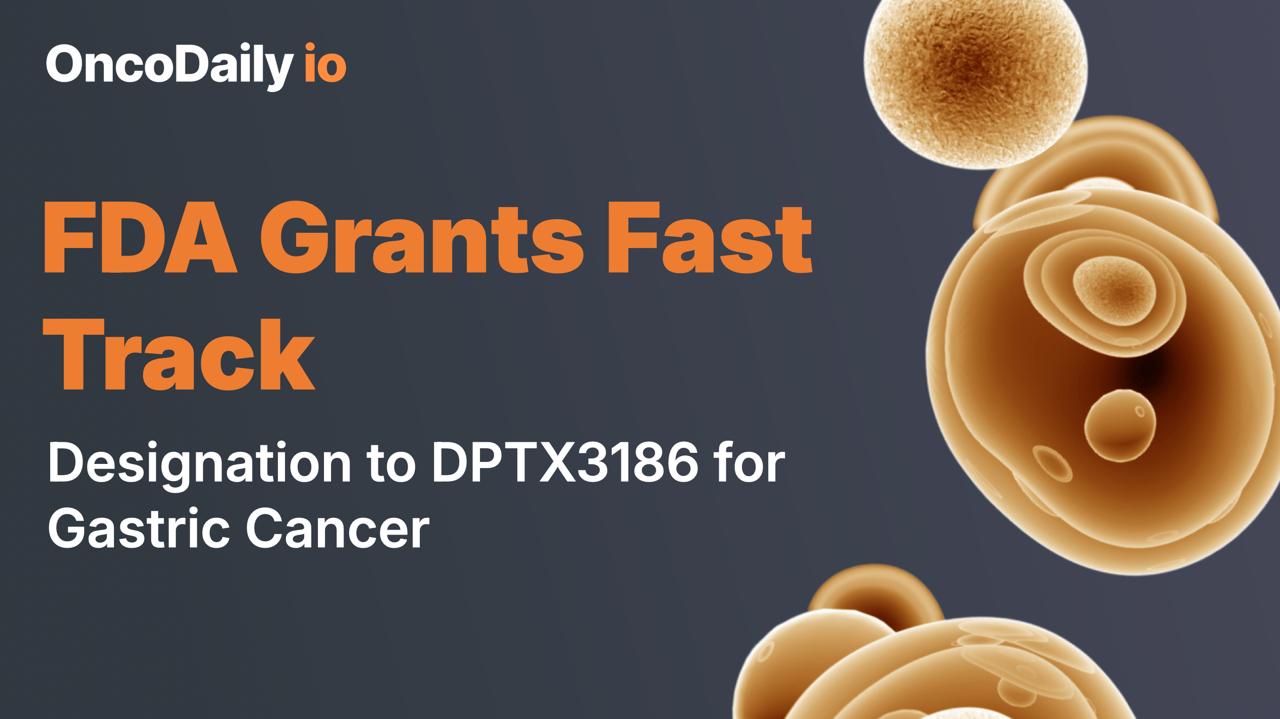Gastric cancer remains one of the most lethal solid tumors worldwide, driven in part by aberrant activation of the Wnt/β-catenin signaling pathway. This pathway promotes tumor proliferation, invasion, and therapy resistance. Despite advancements in chemotherapy, targeted therapy, and immunotherapy, treatment options for metastatic gastric cancer remain limited, underscoring an urgent need for novel agents that can effectively target core oncogenic drivers.
DPTX3186 is a first-in-class oral condensate modulator designed to selectively disrupt oncogenic β-catenin activity. By redirecting β-catenin into an inactive, drug-induced condensate, the therapy aims to inhibit malignant signaling while preserving normal cellular function. This approach represents a new therapeutic modality targeting biomolecular condensates—subcellular structures that regulate protein function and transcriptional programs.
Fast Track Designation
In November 2025, the FDA granted Fast Track designation to DPTX3186 for the treatment of gastric cancer. Fast Track status is reserved for therapies addressing serious conditions with unmet medical needs, enabling more frequent FDA interactions, rolling review of data, and a more efficient regulatory path toward potential approval.
This designation follows the earlier orphan drug designation (October 29, 2025), reflecting the agency’s recognition of gastric cancer as a high-mortality disease and the novelty of DPTX3186’s mechanistic approach.
Mechanism of Action
DPTX3186 modulates the Wnt/β-catenin pathway, a central driver of tumorigenesis in gastric cancer:
- It redistributes β-catenin into inactive condensates, preventing its nuclear accumulation.
- It suppresses β-catenin–dependent transcriptional programs associated with growth and survival.
- It selectively targets malignant β-catenin signaling without broadly disrupting physiological Wnt function, thereby reducing off-target toxicity.
This condensate-modulation strategy represents a new therapeutic class with potential applicability across multiple Wnt-driven tumors.
Clinical Development
The first investigational new drug (IND) application for DPTX3186 was opened in October 2025. A phase 1a/2a clinical trial is now being initiated across major U.S. cancer centers. Key goals of the study include:
Phase 1a:
- Assess safety, tolerability, and pharmacokinetics
- Establish the recommended phase 2 dose
Phase 2a:
- Evaluate antitumor activity in metastatic gastric cancer
- Explore pharmacodynamic biomarkers of β-catenin suppression
Patient enrollment is expected to begin before the end of 2025. Future expansion cohorts will study combination regimens and additional Wnt-driven tumor types.
Preclinical Evidence
Preclinical findings presented at the 2025 AACR Annual Meeting provide strong rationale for clinical development:
In vitro findings
- DPTX3186 disrupts β-catenin nuclear condensate formation.
- It downregulates β-catenin–regulated gene expression, leading to apoptosis.
- Demonstrated broad cytotoxicity across diverse gastric cancer cell lines, including those with high Wnt-pathway activation.
In vivo efficacy
- Showed marked tumor regression in both patient-derived xenografts (PDX) and cell line–derived xenografts.
- Reduced levels of Wnt-related plasma proteins, reflecting systemic pathway inhibition.
These results illustrate potent Wnt/β-catenin suppression, durable antitumor activity, and translatable pharmacodynamic markers.
You Can Watch More on OncoDaily Youtube TV
